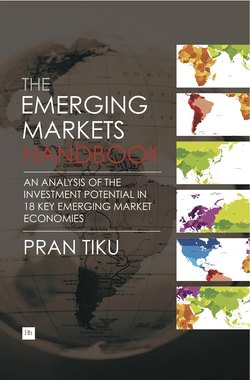Читать книгу The Emerging Markets Handbook - Pran Tiku - Страница 47
На сайте Литреса книга снята с продажи.
3. Financial
ОглавлениеFinancial management has played a pivotal role in the recent success of emerging markets. While sustainable growth and moderate inflation have certainly been a part in this success, they mean little without sound financial practices and institutions. Take the banking sector for example. As the rate of non-performing loans has fallen, so have borrowing costs. These are reflected in the cost of insuring loans (credit default swap rates), which has consistently improved over the years. Across the spectrum of emerging markets, trends such as these are becoming the norm, not the exception.
Today, many emerging market nations have investment grade debt ratings. This would have been unthinkable just a short time ago. In the past many of these countries, particularly in Latin America and Southeast Asia in the late 1990s, had their economies collapse due to large amounts of foreign debt denominated in dollars, pounds or Deutschmarks. Foreign investors would find reasons to panic (sometimes rational, sometimes not) and demanded payment. This, of course, created a run on the local currencies and subsequently the economies would collapse. These scenarios played out in strikingly similar fashion in Argentina, Mexico and Russia during the 1990s. They were textbook cases of how financial mismanagement can wreak havoc on an economy and cripple an aspiring middle class.
Lessons were learned in the process. Today most of these countries have taken serious steps towards controlling inflation, avoiding foreign debt and promoting robust savings rates. The result has been a substantial increase in FDI inflow to support domestic investment.
